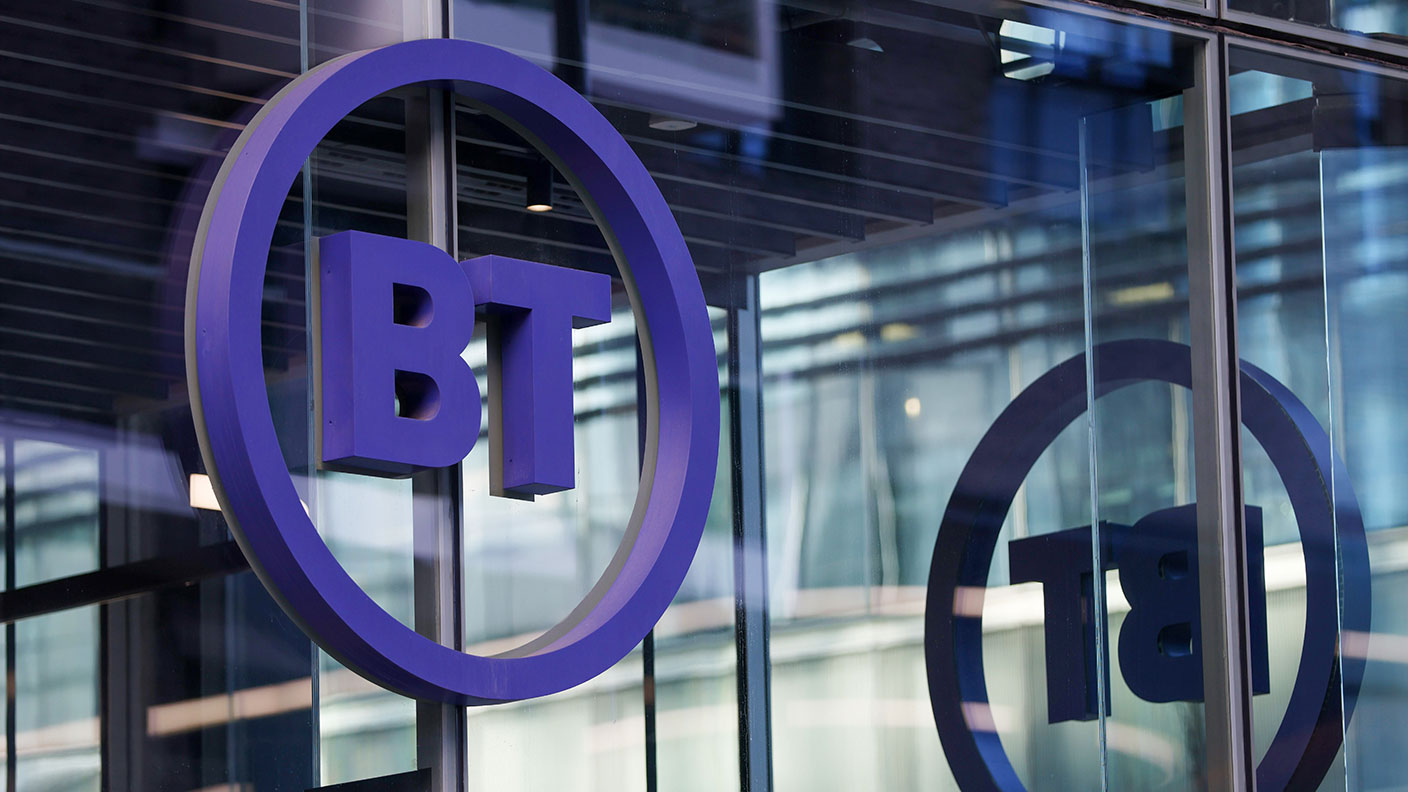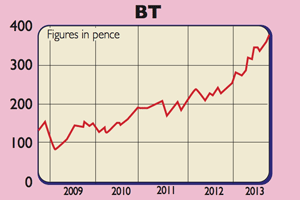Football’s £5bn bonanza
Competition between Sky and BT for rights to screen the footie has handed a £5bn windfall to the English Premier League. Can that really be a good deal? Simon Wilson reports.
Get the latest financial news, insights and expert analysis from our award-winning MoneyWeek team, to help you understand what really matters when it comes to your finances.
You are now subscribed
Your newsletter sign-up was successful
Want to add more newsletters?

Twice daily
MoneyWeek
Get the latest financial news, insights and expert analysis from our award-winning MoneyWeek team, to help you understand what really matters when it comes to your finances.

Four times a week
Look After My Bills
Sign up to our free money-saving newsletter, filled with the latest news and expert advice to help you find the best tips and deals for managing your bills. Start saving today!

What's happened?
Under a three-year deal with the English Premier League (EPL), which will run from 2016-2019, BSkyB has agreed to pay £1.4bn a season for the UK rights to broadcast 126 live games (including the most coveted Sunday afternoon matches). That's a rise of £632m on the deal it negotiated in 2012, and is the equivalent of almost £11m a match.
For its part, BT will pay £320m a season for 42 games, a more modest rise of £74m on its current deal and equivalent to £7.5m per match. The annual total of £1.72bn is £16m more than the BBC's entire programming budget for the year, and represents an astonishing 45-fold increase on its first rights deal with the EPL in 1992 (£38m).
It also means that more than a quarter of all the money spent on TV production in the UK will be on programmes that attract 0.5% of the total audience.
MoneyWeek
Subscribe to MoneyWeek today and get your first six magazine issues absolutely FREE

Sign up to Money Morning
Don't miss the latest investment and personal finances news, market analysis, plus money-saving tips with our free twice-daily newsletter
Don't miss the latest investment and personal finances news, market analysis, plus money-saving tips with our free twice-daily newsletter
How can this make sense?
Football is no stranger to exorbitant price inflation that appears to defy all commercial logic. During the last EPL rights round in June 2012, BT bagged 38 Premier League games a seasonfor £738m, forcing Sky to pay £2.3bn for the other 116.
That was a 70% price hike on the previous contract. In the autumn of 2013 BT bid £299m a year, or £897m in total, for the rights to show 350 Champions League and Europa League matches (the main pan-European club competitions) for three years from 2015. That was more than double the previous deal, under which Sky and ITV paid a total of £135m a year. At the time, that was greeted by analysts as a crazy overpayment.
Why is Sky doing this?
Sky has become a victim of its own success in getting people to pay for sports coverage. Half of Sky's 11.5 million customers pay for sports channels and the EPL is its premium product. Now it's being forced to pay ever-higher sums to keep those rights in the face of a challenge from BT, which wants to use sports coverage to drive its broadband/phone/TV offer.
When Sky lost the European rights, it put a brave face on the loss, claiming that BT had overpaid. But losing the Premier League would be a different matter, potentially sparking an exodus of customers and destroying its business model. Even the loss of the European rights and the perceived threat to its sports dominance wiped 11% off its share price.
Can Sky afford it?
From Sky's point of view, the company has "bought certainty for its business till kingdom come", the media analyst Claire Enders told The Sunday Times. That's because in her view the rights are now so expensive that BT would be unable to justify trying to bid for a majority of games unless it started to charge customers to watch them.
Sky reckons it is going to part-fund its higher football spending by making £600m of cost savings over three years, though details of these are sketchy. It may also have to push up subscription prices not easy in the face of stable or falling prices in the wider economy.
Is it so bad by global standards?
The new deal makes the Premier League the second most lucrative sports league in the world behind the NFL (American football), for which US broadcasters pay $4.95bn a year. The EPL now earns broadly the same as the NBA (US professional basketball), which has recently agreed a $2.6bn a year deal covering 2016-2025, an 180% increase on the previous deal.
The fourth most lucrative sports rights are for Major League Baseball ($1.5bn a year from 2014-21). What all these deals have in common is that in each case the sums involved are surging a boom that "reflects fundamental shifts in the TV industry", says Henry Mance in the FT.
What shifts are those?
The growth of TV on demand, where viewers skip the advertisements, makes live sports events (where they can't fast forward) a crucial draw for advertisers particularly in the US. The other major shift (mostly affecting Europe) is an increase in competition between pay-TV firms and telecoms groups. Sky and BT both sell TV, broadband and landline packages, and will soon add mobile-phone contracts.
In this battle, sports programming is a loss leader for firms such as BT, which is important because it means it can afford to pay more for sports content than Sky's previous rivals for EPL rights (Setanta and ESPN), which needed to turn a profit from subscriptions and advertising revenues.
These factors have helped push the value of global sports rights for top-tier events to $28bn, up one-third from 2010, say consultants Deloitte. "Is the bubble going to burst? We see no sign of it," says Deloitte's Austin Houlihan. "The trend of the past 20 years suggests it won't."
How the auction works
The mechanics of the EPL auction are "shrouded in secrecy",says Simon Duke in The Sunday Times, but the process"appears tailor-made to sweat broadcasters for as muchmoney as possible". The Premier League is thought to havehired experts in game theory (the branch of mathematics thatanalyses decision-making in complex situations where actionsdepend on the choices made by competing players) to designthe sale.
The process involves a blind auction, which meansparticipants must submit sealed offers for each of the seven"packages" of games available, without knowing how muchothers have bid. In this case, it is possible that rumours of bidsby deep-pocketed new entrants (US broadcaster Discoveryand Qatar's BeIN Sports) induced Sky to pay over the odds.
Get the latest financial news, insights and expert analysis from our award-winning MoneyWeek team, to help you understand what really matters when it comes to your finances.
-
 How a ‘great view’ from your home can boost its value by 35%
How a ‘great view’ from your home can boost its value by 35%A house that comes with a picturesque backdrop could add tens of thousands of pounds to its asking price – but how does each region compare?
-
 What is a care fees annuity and how much does it cost?
What is a care fees annuity and how much does it cost?How we will be cared for in our later years – and how much we are willing to pay for it – are conversations best had as early as possible. One option to cover the cost is a care fees annuity. We look at the pros and cons.
-
 BT is making progress and the dividend is back – but is it time to buy yet?
BT is making progress and the dividend is back – but is it time to buy yet?Analysis Investors in telecoms giant BT have seen dismal returns over the last 15 years. But there are signs that it is starting to turn things around, says Rupert Hargreaves. So should you buy BT shares?
-
Sell your telecoms shares – this merger madness is bound to end in misery
Opinion A lot of money will be spent in the telecoms tie-up frenzy – but much of it will be wasted, says Matthew Lynn.
-
A shake-up for the sleepy telecoms sector
Features The shape of the telecoms sector is changing, as BT's ambitious plans show.
-
Vodafone takes fight to BT
News Telecoms giant Vodafone has vowed to take on BT in the broadband and television market.
-
Company in the news: BT
Features BT is a company in rude health, but support for the share is waning, says Phil Oakley.
-
 Why higher interest rates could be good news for BT
Why higher interest rates could be good news for BTFeatures A rise in interest rates could deliver a nice boost to BT, one of Britain’s largest companies, says Phil Oakley. Here’s why.
-
BT’s football coup
Features BT has made an aggressive move into the pay-TV sector, snatching lucrative football rights from Sky and ITV. But has it paid too high a price? Simon Wilson investigates.
-
 Companies in the news: BT and Merlin Entertainments
Companies in the news: BT and Merlin EntertainmentsFeatures BT has staked its future on Premier League football, and the owners of Alton Towers are floating the company. Is it time to buy? Phil Oakley reports.